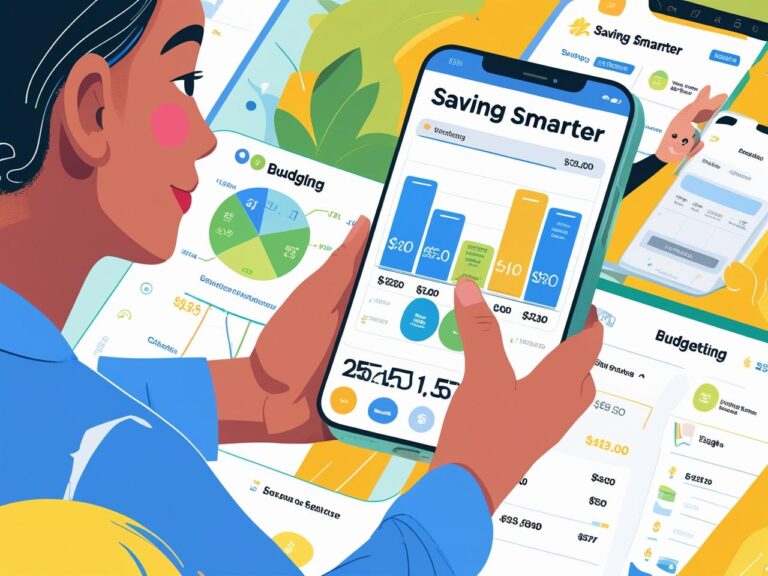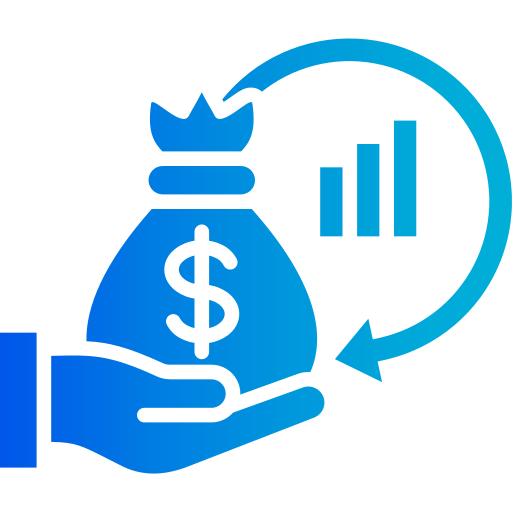Managing your money wisely is the first step to financial freedom. Whether you’re a student, young professional, or starting a side hustle, this beginner’s guide to money management will help you build strong money habits that last a lifetime.
🚀 Why Money Management Matters
Most people don’t struggle because they don’t earn enough — they struggle because they don’t manage what they have.
Effective money management helps you:
- Avoid unnecessary debt
- Save for emergencies and goals
- Invest for the future
- Build financial confidence and independence
🧭 Step-by-Step Guide to Managing Your Money as a Beginner
1. 🧾 Know Where Your Money Goes
Start with a spending audit:
- Track all your expenses for 30 days
- Use tools like Walnut, Money Manager, or Google Sheets
- Categorize expenses: needs, wants, savings, debt
📌 Awareness is the first step toward control.
2. 🗓️ Create a Simple Budget (50/30/20 Rule)
Break your income into:
- 50% Needs – Rent, groceries, bills, education
- 30% Wants – Dining out, subscriptions, entertainment
- 20% Savings & Investments – Emergency fund, SIPs, debt repayment
🛠 Tools: Try apps like YNAB, GoodBudget, or ET Money
3. 🛑 Build an Emergency Fund (Before Investing)
Set aside at least 3–6 months of living expenses in a savings account or liquid mutual fund.
✅ Why it matters:
- Protects you from job loss, medical emergencies
- Avoids taking expensive loans or breaking investments
4. 💳 Control Your Debt
Not all debt is bad, but high-interest debt (like credit cards) can destroy your savings.
🧠 Strategy:
- Pay off highest-interest loans first (avalanche method)
- Avoid EMI traps for wants (mobiles, gadgets, etc.)
- Set auto-reminders for bills to avoid penalties
5. 📈 Start Saving and Investing Early
Saving is keeping money aside; investing is making that money grow.
🌱 Start small:
- Open a Recurring Deposit or SIP in Mutual Funds
- Use tools like Groww, Paytm Money, or Zerodha
🎯 Remember: Time > Money when it comes to compounding.
6. 📉 Avoid Lifestyle Inflation
As your income increases, your expenses shouldn’t rise at the same pace.
🚫 Don’t fall into traps like:
- Upgrading to the latest phone every year
- Taking loans to “look rich”
- Overspending on vacations or parties
✅ Focus on growing your assets, not just your image.
7. 🧠 Improve Your Financial Literacy
Knowledge = Confidence
📚 Best resources to learn about money:
- Digital Dhan Hub articles
- YouTube channels like Pranjal Kamra, CA Rachana Ranade
- Books: Rich Dad Poor Dad, The Psychology of Money
📌 Learn 1 new concept every week — it compounds.
🔁 Monthly Money Routine for Beginners
Here’s a simple checklist to follow:
| Week | Task |
|---|---|
| 1 | Review last month’s expenses |
| 2 | Add to your savings/investments |
| 3 | Pay bills and clear pending debts |
| 4 | Learn something new about money |
❓ Beginner Money Management FAQs
📊 Q1. What’s the best way to start managing my money?
Start by tracking your expenses and creating a simple monthly budget.
💳 Q2. Should I pay off debt or invest first?
Build a small emergency fund, then pay off high-interest debt before investing.
💼 Q3. How much of my income should I save?
At least 20%, but aim for 30–40% if possible, especially when young.
🤔 Q4. I don’t earn much — is this still for me?
Yes! Even small amounts saved and invested consistently can grow big over time.
🔐 Q5. How can I protect my money from inflation?
Invest in inflation-beating assets like mutual funds, stocks, or gold ETFs.
🔗 Useful Tools & Articles
Final Thoughts: Start Small, Stay Smart
You don’t need to be a finance expert to manage your money well. You just need:
- Clear goals
- Simple systems
- Consistent habits
Take the first step today. Your future self will thank you.
✅ Ready to Take Action?
👉 Read: Beginner Investing Guide
👉 Explore: Free Tools & Calculators
👉 Join Our Newsletter for Weekly Money Tips


